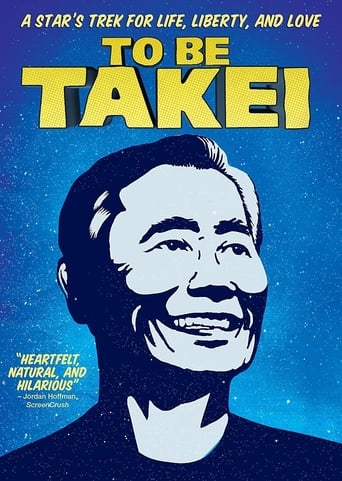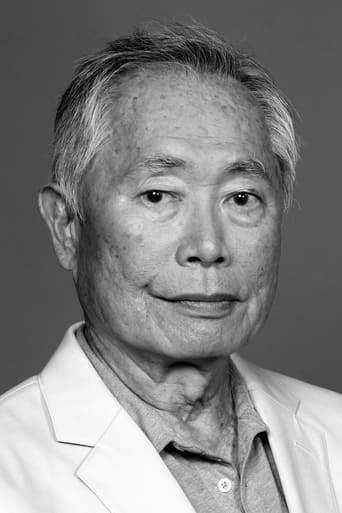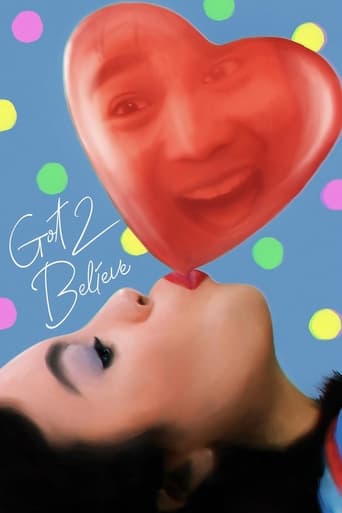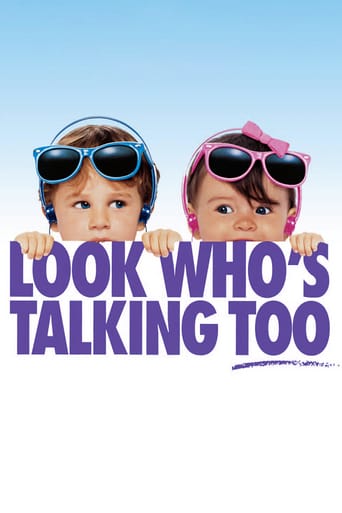To Be Takei (2014)
Over seven decades, actor and activist George Takei journeyed from a World War II internment camp to the helm of the Starship Enterprise, and then to the daily news feeds of five million Facebook fans. Join George and his husband, Brad, on a wacky and profound trek for life, liberty, and love.
Watch Trailer
Free Trial Channels
Cast


Similar titles
Reviews
Some things I liked some I did not.
While it is a pity that the story wasn't told with more visual finesse, this is trivial compared to our real-world problems. It takes a good movie to put that into perspective.
This is a coming of age storyline that you've seen in one form or another for decades. It takes a truly unique voice to make yet another one worth watching.
This is a gorgeous movie made by a gorgeous spirit.
George Takei, the famous Hikaru Sulu from the classic Star Trek, has had a life worth to tell. As a kid, he spent some years with his family in an internment camp on US soil (Yes, Americans did that too). Besides, back in those years of the "Good old America" being a young Asian actor only meant he would get stereotyped roles. Takei wanted more, and most certainly he did! Someone that had to endure really hard times has become a legend, a cultural icon even.In this documentary we will meet Takei, his husband and manager Brad, relatives, fans...all of them have their place in Takei's endless universe of love and positivity. There is not a specific approach, not doses of drama or comedy, but a true depiction of a lovely couple, in which one of them turns to be a legend of sci-fi, and much, much more.To Be Takei is a work about a man that had to trespass literal and metaphorical fences and boundaries. A story told from the heart, full of warmth and honesty. The story of a man that has fought against prejudices, racism and homophobia, always passionately, always in a positive mood. He is and has been an icon to several generations, and still manages to inspire, like he has done with this documentary. At least, he has inspired me, and I hope you watch it, because as he always says "It's OK to be Takei".
"To Be Takei" is a documentary about the life of George Takei of Star Trek fame. It primarily focuses on his life today as well as his childhood in a Japanese internment camp during WWII. For me, it offered only few surprises because I already knew quite a bit about Mr. Takei, as the actor has been very public in recent years. His Twitter feeds and comedy clips online are legendary and with a HUGE following numbering in many millions. However, despite me already knowing that he's gay and married his partner back in 2008, the film did reveal some interesting information about the man. However, despite a few revelations, the best part is simply to listen to the man talk about his life...and laugh. Yes, Takei is a chronic laugher and even when he talked about subjects he didn't like (such as every time William Shatner was mentioned), his smile and laughter was omnipresent--and it's hard not to like someone who laughs this heartily and this often.The documentary consists of Takei, and sometimes his husband, Brad, talking about their lives and going about their exhaustive routine of film, convention, radio and public service appearances. However, it did not have a narrator--something I really liked in this film. So, instead of listening to a narrator explaining or interpreting, the film just lets him talk...like you are listening to him as he talks about whatever comes to mind or whatever piques his interest. Additionally, there are many television and movie clips as well as photos--which all help tell his story. The main themes are alienation and human rights. This begins with Takei's discussion of how his and other families were denied their basic freedom when Japanese-Americans on the West Coast were forced into internment camps during WWII (FYI--this did NOT happen to German-Americans despite the US also being at war with the Nazis). And, over the course of the film, it segues into his discussing his homosexuality and gay marriage. In particular, Takei's decision to come out about his orientation as well as discussing his life with his partner--and the film does a good job humanizing homosexual marriage and puts a face on it--making it more than just a concept. The films ends with a discussion of Takei's renaissance--his new career in the busy latter years of his life as a cultural icon--as well as his coming to terms with his internment years. All in all, the ending presents an interesting and unexpected turn of events to say the least over the last decade or so of his life."To Be Takei" is a nice, gentle picture where you tag along with Takei and learn from him and his years of experience. Most of it is very uplifting and enjoyable--though as I mentioned above, there isn't a lot of nice stuff in the film about William Shatner and I am sure the guy won't be buying a ticket to see this film himself! However, there are also interesting interviews with surviving cast members (including Shatner, Leonard Nimoy, Nichelle Nichols and Walter Koenig without his toupee, as he apparently is NOT self-conscious about his baldness), footage of Takei greeting Star Trek fans and signing autographs at a convention as well as a few interviews with his friends. The sum total of all this is enjoyable and easy to watch--just like listening to an old friend reminisce.
It must be more than okay to be Tokei, it must be fantastic! Watching George and his husband, Brad, interact with each other and with their crowds of fans was a great way to hide from an oppressively hot August afternoon. Their honest affection for each other and tender regard for each other's friends and family evoked collective sighs and chuckles from a small but appreciative cinema audience.We see George recount memories of his childhood internment, and then later watch him perform in the new theatrical musical, "Allegiance," bringing those memories to life as he and his collaborators prepare for a Broadway preview later this year. His unmistakable voice, his inimitable laugh, and charismatic presence are beautifully balanced by Brad's more practical and less animated personality."To Be Takei" is a must see for Trekkies and others who appreciate the contributions of my favorite starship helmsman. Cameos from Leonard Nimoy, Nichelle Nichols, and Walter Koenig prove that William Shatner is creepier than a Clingon. And, amazingly enough, I was able to watch Howard Stern without breaking-out in a brain rash. I positively enjoyed this documentary and look forward to sharing it with others once it becomes available through my subscription service.
George Takei (pronounced as in "toupee," as George points out) is best known in North American culture as Lt. Hikaru Sulu on the original "Star Trek" television series from the 1960s and the numerous later films. This documentary traces his life from his childhood years spent in a Japanese-American internment camp during WWII, through his struggles as a Japanese-American actor trying to get work, his signature role as Sulu, subsequent work in politics and with the Los Angeles transit company, and finally into his activism as a gay man fighting for marriage equality. Throughout the film, he comes across as optimistic, humble and friendly. It is clear that he depends on his long-term partner and now husband Brad, and that their relationship is central to both their lives, but he also talks candidly about being closeted for many decades, primarily so that he could continue to work. He regrets having taken stereotypical Japanese roles in a couple of Jerry Lewis films, but he is also proud of the fact that his characterization of Sulu encouraged younger Asian actors to keep trying to find acting work (many current Asian actors point to George as being their first role model in television and film).The only sour note in the film comes from William Shatner, Captain Kirk himself, who insists several times that he and George had no personal relationship and even that Kirk and Sulu had no personal relationship in the TV show and films; and of course he claims to have received no invitation to George and Brad's wedding, which is not true. The biggest surprise to me was Howard Stern, a radio shock-jock who generally seems like just a super-annoying person but who talks with, and about, George with obvious affection.As a document showcasing what Hollywood was like for non-white actors between the 1950s and modern times, there could have been a bit more information. But as a document describing the life, career and personal arc of an individual who has lived an interesting life in interesting times, this is stellar.


















